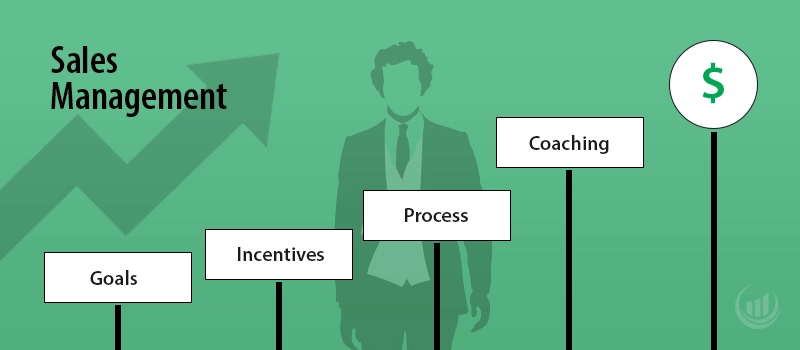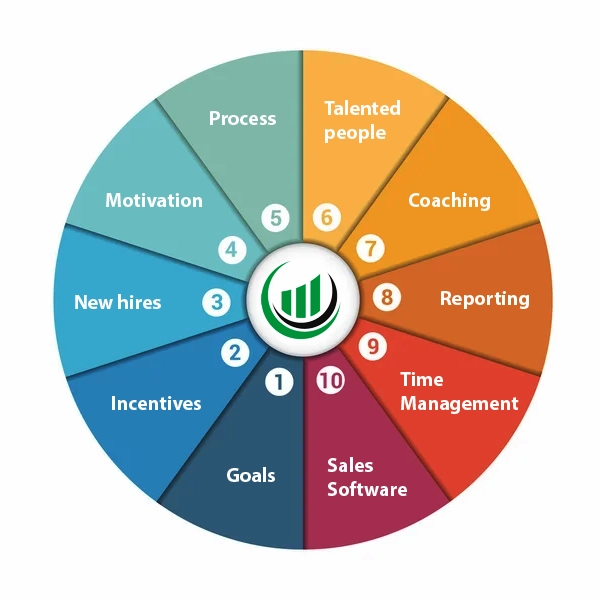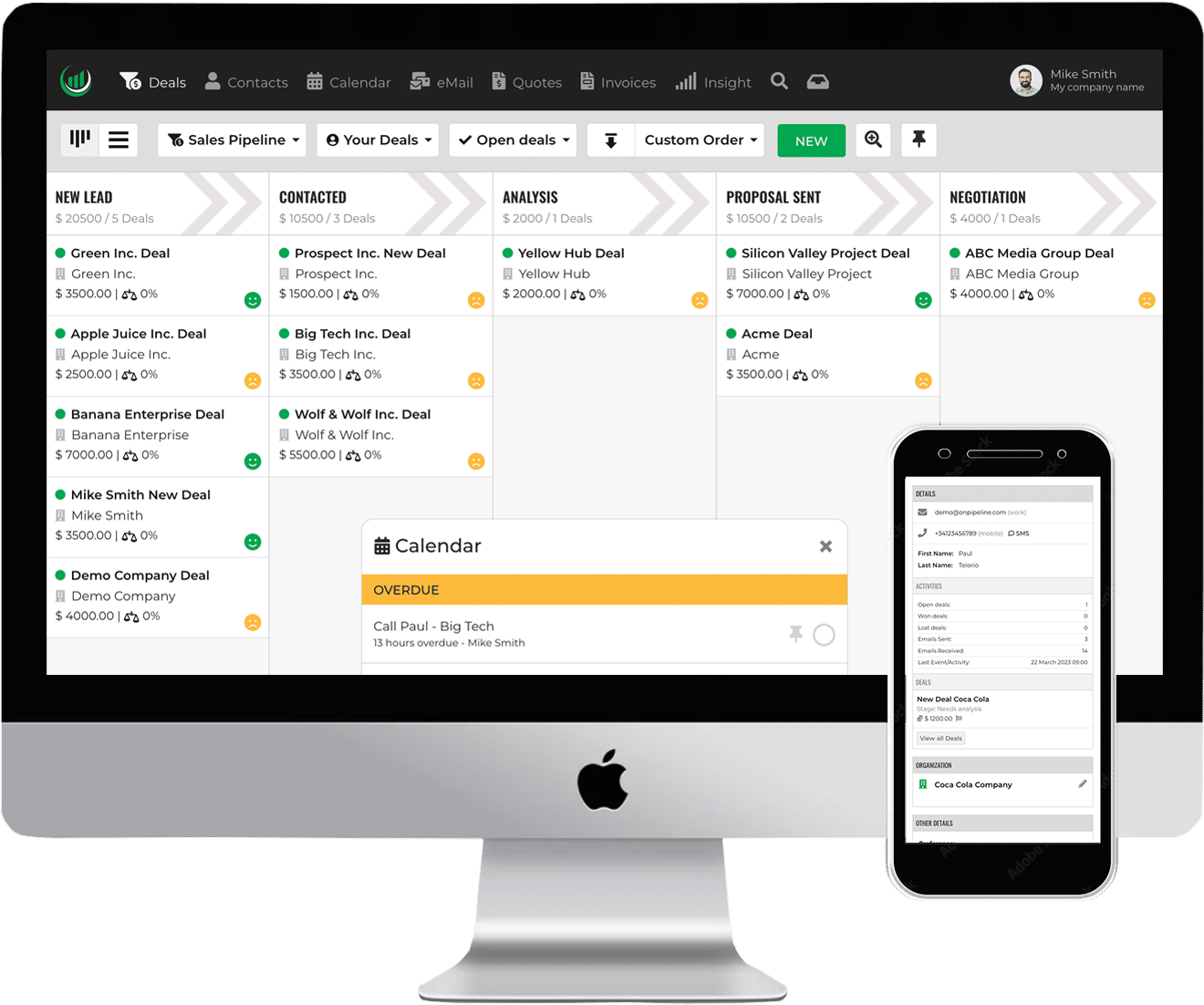What is Sales Management?
Sales management is the act of organizing a sales team to help them build better relationships with customers / potential customers and close more deals.
All businesses need to understand how to sell, and successful businesses aren’t just built on the backs of talented sales reps, they also rely on competent sales managers.
Leaders should ensure that their team is properly trained in sales techniques, such as negotiating, cold-calling, and upselling. It is important for managers to stay up-to-date with industry trends, as well as their competitors’ strategies. They should motivate and support their team by offering rewards, recognition, and positive reinforcement.
By implementing these strategies, managers can help their teams increase sales and conversion rates.
Goals
Managing a sales team effectively can be an incredibly difficult task, as individual interests and motivations can often get in the way of what would be in the best interest of the team as a whole.
As a Sales Manager, you shall create strategies and systems that ensure that each team member is working towards a common goal and that individual interests don’t take priority.
This may involve setting clear expectations for each team member, implementing incentives for meeting team goals, and providing regular feedback and guidance to ensure that everyone is on the same page.
Additionally, it can be beneficial to cultivate an atmosphere of collaboration and mutual respect among team members, so that everyone feels comfortable communicating with each other and working together towards common goals.
One way to do this is to set a number of goals, both individually and as a team. You don’t necessarily have to set sales goals on an individual level if you don’t think it’s appropriate.
Also, you need to create an incentive structure to increase sales performance, and this not only helps you generate revenue, but also motivates employees. Make sure you communicate any goals to your sales team members.
Incentives
Incentives are a major driving force behind the sales activities of your representatives.
In short, the right incentives can motivate them to work hard and maximize their efforts, while the wrong incentives can lead to decreased motivation and performance, and potentially cause problems for the organization.
Therefore, you should ensure that you align the incentives provided to your reps with the organization’s goals and objectives, and structure them in a way that will motivate them to achieve those goals.
Additionally, it is important to provide feedback to your reps so they can understand how their efforts are contributing to the overall success of the organization.
Many sales managers give commissions to attract new customers, but provide nothing to those who sells to existing accounts, and, finally, Sales reps will focus their efforts on finding new customers leaving opportunities with existing customers behind.
New hires & onboarding experience
New people will continuously join your sales team. It is imperative that you communicate the company’s values.
Onboarding should include information on how to use your CRM systems and make deals with clients – this includes comprehensive sales training on processes, sales tools, and role parameters to ensure their maximum success.
Training new hires thoroughly and equipping them with all the sales tools to manage their sales pipeline is very important.
Show them that you care about their interest and that you want them to be prepared for their role in your company.
Team Motivation
Making a sale isn’t always easy, and sales reps often have to overcome a wide variety of challenges.
On some days, they may be faced with no sales at all, or other frustrating situations. Therefore, it can be helpful to identify what motivates a particular sales rep, and then use that as leverage to encourage them to keep pushing forward.
This could mean providing incentives such as bonuses or rewards, or simply recognizing their hard work and effort.
In conclusion, by understanding and acknowledging the individual motivations of sales reps, it is possible to create a positive working environment that stimulates and inspires them to reach their goals.
Sales process
Sales process affects performance. Part of effective sales management is to find problems in the sales process and then find solutions. One of the best ways to do this is to ask your team members where they think there are points of friction (highlight steps in the sales process). You can also use reports to test what works, perfecting your sales funnels over time.
Talented people
The turnover of the representatives is high in the sales sector. Part of sales management is finding and hiring talented new team members.
But recruiting well can be difficult! Successful managers try to spend about an hour each day nurturing contacts with potential staff and creating qualified leads, whether on LinkedIn, Indeed, or another platform.
They try, where possible, to have a pipeline of people ready to join the team if another member leaves.
Coaching and tutoring your team
Not every member of your sales team has the skills to do the job right from day one. What makes a great sales manager is someone who can follow team members before they become a problem.
For example, this process might include components such as listening to calls from initial contact or joining them for customer meetings and then talking to them after the meeting about what they think went well or could be useful for.
Reporting
Sales management is also about reporting – digging into the performance numbers to find areas that need improvement.
You will often find that you have some performers alongside a group of employees who are lowering the team average. Your job is to find ways to incentivize.
Sales managers also need to track the progress their team makes over time to make sure they’re not falling back. It is vital to identify trends in advance to ensure standards don’t slip away and team members don’t miss out on sales opportunities.
Time Management
Cloud-based platforms are incredibly useful for taking quick action and can have a major impact on your productivity.
A Cloud CRM, for example, allows your team to solve customer inquiries and issues on their own, which can significantly reduce the amount of time that would otherwise be spent on customer service.
By streamlining the process, you can save time that can be used for other activities, such as developing new strategies or optimizing existing ones.
The ability to take action quickly and efficiently is invaluable for any business looking to increase their productivity.
Sales Management Software
Software can help improve your sales management process by automating certain tasks that would otherwise need to be carried out manually.
This can include tasks such as generating customer invoices, tracking customer orders, managing customer payment plans and more.
Additionally, software can enable sales teams to better track customer data, such as prior orders, preferences and contact information, which can help to improve customer satisfaction and boost sales.
Finally, software can provide detailed insights into the performance of sales teams and help to identify areas for improvement.
- Help you create an effective sales processes
- Manage your contacts
- Improve quality lead generation
- Prepare offers
- Revenue forecast
- Improve organizational performance and economic results
The main benefit of using sales management software is to reduce the time spent on repetitive tasks and improve the visibility of the sales pipeline.
Customer Relationship Management (or CRM) is building relationships with potential and existing customers. CRM software are specialized tools that help sales processes, personalize customer service and increase performance



